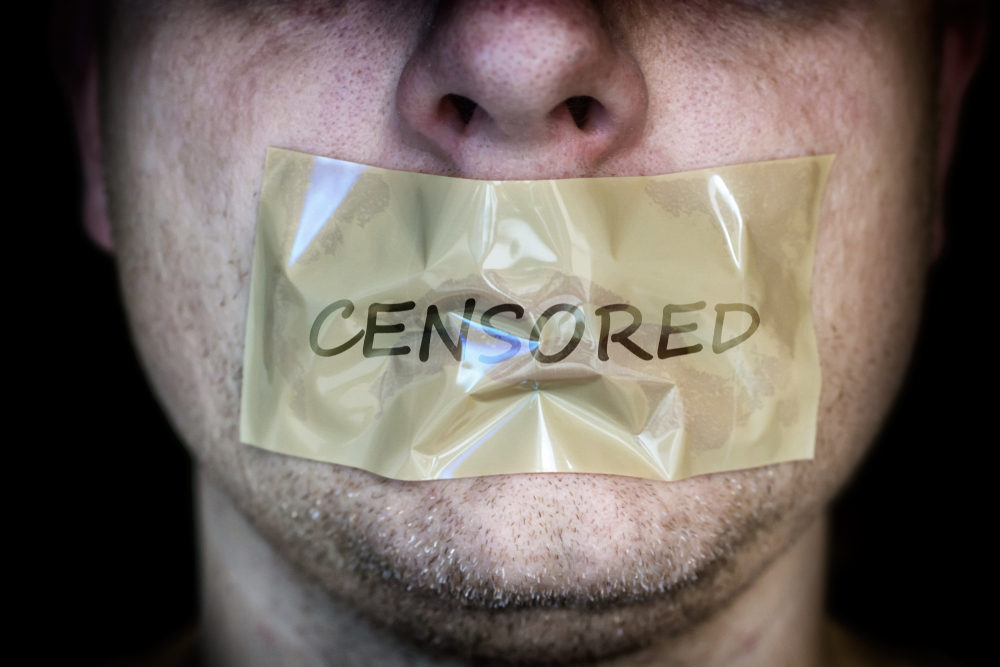It is often said that “no man is an island,” however that sentiment can hardly be felt by Julian Assange right now. Once lauded by his journalistic peers for being a courageous voice for independence and truth in the media, the same voices are now singing quite a different tune; portraying him as a criminal and a menace to society – but why?
It truly is a “David versus Goliath” situation, with monumental powers working behind the scenes to launch an all-out assault against a solitary man who is seeking to speak truth to power, simply by exercising his civil rights to speak and report freely.
In fact, these are the very same liberties which have allowed his critics to build a reputation of their own, and to keep targeting him with a vengeance. So how have we arrived here?
Currently, Assange is being held in the U.K.’s Belmarsh maximum security prison after an arduous seven years spent in minimal living conditions within the Ecuadorian embassy in London (under the protection of asylum).
He is facing accusations from the United States government who is seeking to charge him with conspiring to commit unlawful computer intrusion predicated upon his involvement with Chelsea Manning (at the time, Private First Class Bradley Manning) for gaining access to a classified U.S. military network, for which Manning was later convicted on 17 counts.
Of course, these charges are subject to the discretion of (and to change at) the whims of the United States prosecution. It is safe to say that the United States is pursuing charges against Assange to establish a favorable precedent in order to potentially squash any other voices who rise up to challenge the U.S. government’s perpetuated narratives in the future.
Assange, along with the accountability and transparency operation which he formerly headed, Wikileaks, were once bestowed with great praise and even accolades from prestigious international media outlets. Establishment media forces for a time took advantage of Wikileaks’ releases by parsing their reports and omitting portions to suit their own agendas.
The Guardian’s Alan Rusbridger in January of 2011 wrote how, “Assange remains an important figure – and why the story is destined to run and run,” while simultaneously boasting of the Guardian’s own role in Wikileaks’ releases. It was a media PR campaign designed to boost their credibility, and perhaps more importantly, their profits.
“The Guardian was, for many months, the only paper to write about Wikileaks or to use any of the documents they were unearthing,” chimed Rusbridger. The Economist in 2008 was all too happy to award Assange the New Media Award, stating what an impact he had made in the world of journalism.
Fast forward to today, where The Economist has stated that Assange is a threat, and is now launching a “controlled chaos” campaign against his character, having done a full 180 degree turn.
They loudly proclaim that his work could potentially result in the “destabilization of American democracy”. The Guardian, having also been recruited in the chaos campaign against Assange, is now launching baseless accusations that in fact Assange is in cooperation with Russia’s Kremlin in order to conduct grand conspiracies against the United State’s sovereignty.
They detail in a September 2018 article a supposed “tentative plot” concocted by Russian diplomats in coordination with people “close to Julian Assange” in order to “assess” whether they could help him flee the UK. This “tentative plan” which would have apparently smuggled Assange out of the Ecuadorian embassy in a diplomatic vehicle to Russia where he would potentially be immune from U.S. extradition was later “abandoned after it was deemed too risky.”
The article then goes further to call into question Assange’s involvement with the Russian government based on the completely unsupported assertions within the article. Indeed, the article itself admits that the “details of the Assange escape plan are sketchy” while indicating also that “sources offered conflicting accounts” of who cancelled the operation.
Fidel Narvaez, who was apparently the point of contact between Russia and Assange himself denies (again, within the article itself) having ever been involved in discussions with Russia.
We are witnessing a dangerous dawn of a brave new world – one where criminalisation of free thought and opposition to outright government tyranny has taken hold.
The slanderous organizations who seek Julian’s head on a stick are simply self-appointed “officers of the peace” while heroic truth-tellers are deemed to be criminal troublemakers and reckless opportunists. However, it begs the question – which of the two is truly costing the public more?
The single man having recently spent a full seven years out of the public arena and now in U.K. custody awaiting extradition to the United States, or the humongous and monolithic media empires who oppose him? If they can stifle one voice, what is to stop them from silencing another? Or another?
It is compelling that those who once supported Assange’s endeavours and profited from them now are the very same leading a crusade to tarnish his reputation and insist that his freedom be deprived from him indefinitely. As for the impact upon our collective society, journalism, and free-thinking in general, that has yet to be seen and measured.
Akashic Times is the UK’s only online, fully independent not-for-profit newspaper that brings you real news from across the globe. If you want to keep ahead of what is really going on in the world, subscribe to our newspaper via the subscribe button and join our Facebook & Twitter pages. Subscription is completely free ofcourse
















Follow Us!